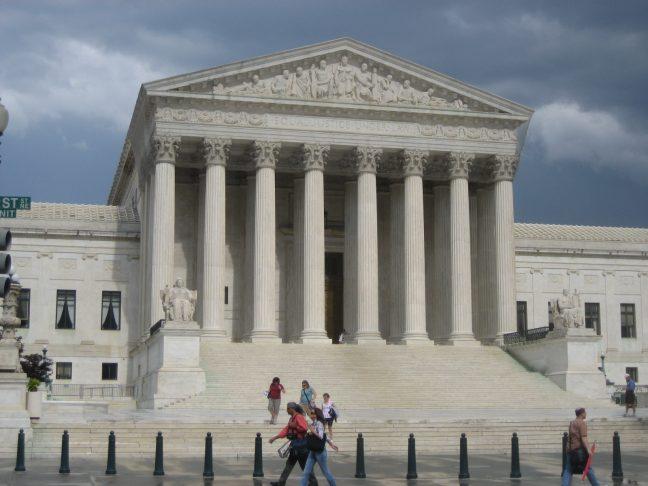A panel of three federal judges decided Tuesday to throw out Wisconsin’s gerrymandering case, five days after the Supreme Court ruled that federal courts cannot consider cases that allege unfair elections maps by a political party.
According to the Milwaukee Journal Sentinel, this decision was made from cases in North Caroline and Maryland, but made it clear that Wisconsin’s case would be tossed as well.
Gerrymandering often splits up concentrated areas of party alignment, so that the large population of that party’s voters is divided up into many districts. By doing this, that concentrated group will often not have majority in any one of the districts it has been split into, even though there is a large number of people voting for that party’s candidates.
Gerrymandering can also function to try to group members of a party that live far away from each other into one district, creating odd-looking districts that have received derision for the obvious attempt at an unfair advantage.
The 5-4 opinion by Chief Justice John Roberts stated that partisan election maps drawn by North Carolina Republicans and Maryland Democrats are constitutional, according to the MJS.
“How do you decide where the line is between acceptable partisanship and too much partisanship?” Roberts said.
Roberts was joined by the four other conservative justices. The liberal justices dissented, with Judge Elena Kagan writing the dissent on behalf of all four.
“Of all the times to abandon the court’s duty to declare the law, this was not the one,” she said.
The court declined to intervene in similar cases five times prior, most recently last year, including when the justices refused to decide gerrymandering challenges in Wisconsin.
However, now the Wisconsin case has been dropped by a federal court. This was issued five days after the Supreme Court’s ruling, according to the Journal Sentinel. They cited the Court’s decision as one that made it clear the Wisconsin case would not see any success at the federal level.
Both Wisconsin Democrats and Republicans asked for the case to be dropped, with Democratic voters who brought the Wisconsin suit asking the federal judges Friday to dismiss their case in light of the Supreme Court’s decision.
They additionally argued that they shouldn’t be responsible for the state’s legal costs because, until the recent decision, it had never been ruled that courts can’t consider such challenges.
However, according to the Journal Sentinel, Republican lawmakers and Democratic Attorney General Josh Kaul have both said they are considering asking the court to order them to cover some of the state’s legal fees.
The judges gave the GOP lawmakers and Kaul until July 15 to decide, and to justify why they are entitled to the payments of these fees by the Democratic voters.














